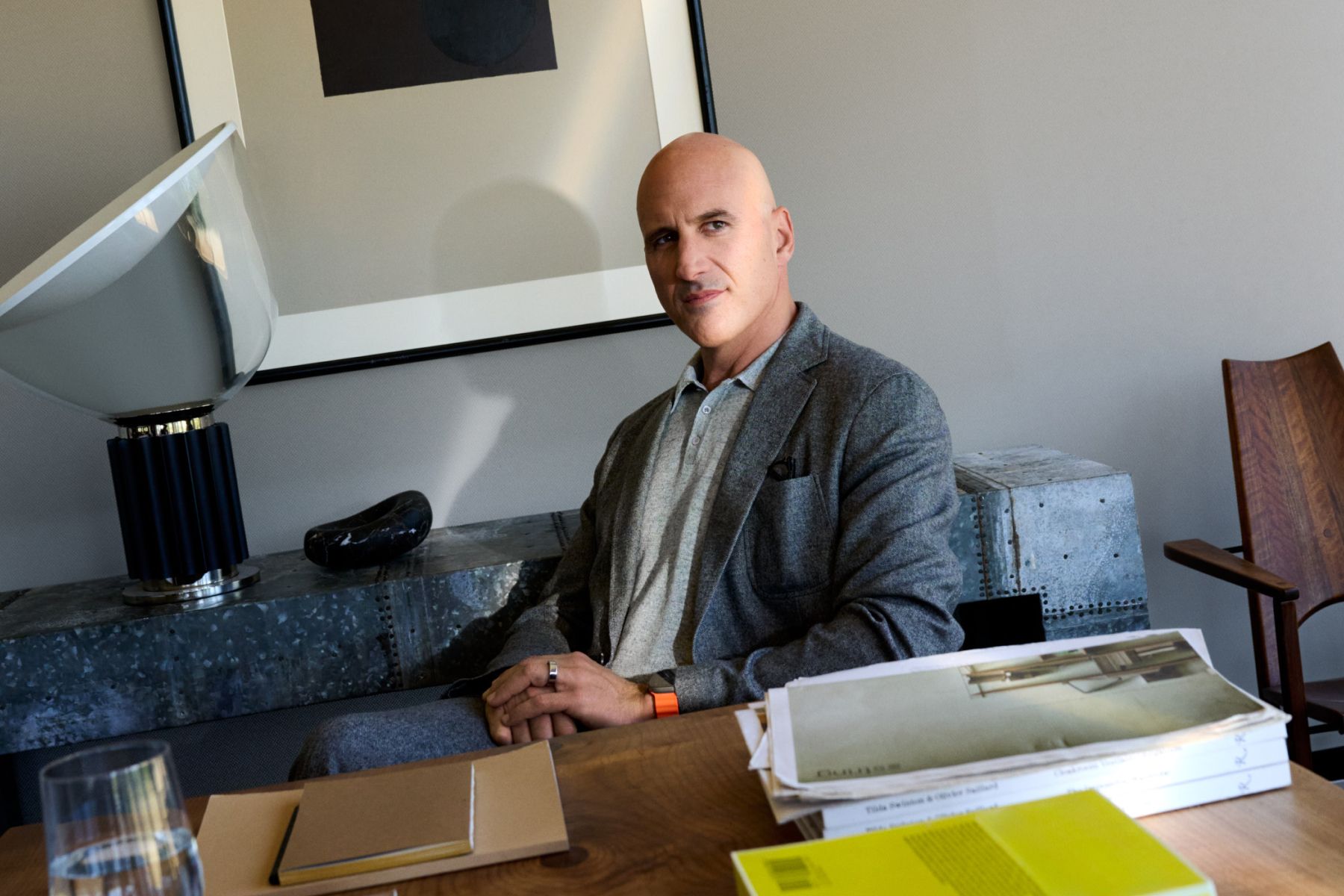Creating Belonging & Community: Discord’s Jason Citron on Leading During COVID-19

Discord’s multi-chat community grew out of shared gaming experiences, but has attracted a vast new audience during the COVID-19 lockdown. CEO and Co-founder Jason Citron shares how the team has adapted to the challenges of working remotely and found new ways to support its imaginative users. Discord, he explains, is being used for everything from book clubs and study groups to art projects.
About this series: As we navigate the evolving landscape of the world today, it's been powerful to see many organizations taking on new initiatives to engage with their employees, customers, and communities.
We spoke with leaders at our portfolio companies about the meaningful actions they’ve taken to continue moving forward through the COVID-19 pandemic. We hope the insights, advice, and best practices they’ve shared might be helpful to others going through similar challenges.
How did you come up with the mission behind Discord?
Jason: The mission came from our personal experiences playing video games growing up. Stan [co-founder Stanislav Vishnevskiy] and I both spent countless hours online playing games together with our friends. We learned how to build friendships and found community. So we decided to build Discord because we realized there was an opportunity to bring that kind of communication service to the world, and we've seen incredible adoption since we started Discord five years ago. We've been truly humbled and honored to be able to build a service loved by hundreds of millions of people.
How has user behavior changed on Discord since the start of the COVID-19 pandemic?
Jason: Over the past 3-4 months, we’ve seen an acceleration of a lot of trends that were already taking place. We've noticed people using Discord for much more than playing video games. People are using it to study together, setting up classrooms to create a space online for teachers and students. We've also had some Boy Scout troops setting up Discord servers to be able to stay in touch and work on projects. There are arts and crafts communities using it to share their work and hang out while they are at their desks. It means they can create a shared experience. And we've seen people make hip hop albums, learn how to draw, and teach each other languages — many different ways to spend time talking to people they care about.
How has Discord managed to build such affinity with its users?
Jason: People are always looking for belonging, friendship, and ways to spend time with people they care about. Discord gives them a new way to spend quality time together, no matter where they are. A lot of the passion and love for our service comes from the fact that we're helping people find belonging in their lives. They want to spend quality time with people online, and this will continue post-COVID-19.
There are just so many motivations for coming to Discord.
In France, we got to number one on the iOS charts because so many people were using Discord for school. The official government platform broke, and all the students just said, "We should just use Discord." That's kind of funny!
What changes have you had to make to Discord to better support people during this difficult time?
Jason: We’ve been scaling our infrastructure — we had to nearly double our capacity in two or three weeks to meet demand. We also launched ‘templates’, so if you're setting up a new server you can get going more quickly, whether it's a classroom, local arts and crafts project or a community book club.
We knew video chat was going to become more important, so we decided to make it more accessible. Video chat has been here for a long time, but people are becoming more comfortable with it. I've noticed I’ve been video chatting more with friends, and not only friends who live nearby but who live across the country or the world. It’s interesting that there's no reason we weren't video chatting this much before, but COVID-19 has normalized it. Once I can hang out with my friends again, video chat use will reduce a bit, but I'll still spend time in the evenings on Discord. We see video chat as part of that mix.
What makes Discord magical is that it's this place where you can do video chat, but also hang out in voice chat. It’s a way to be together but not necessarily have such a demand on your attention. You can play video games, work on homework, work on side projects, or just text chat, which is even less of a commitment. So you have these different ways that you can engage with folks.
How did the lockdown impact Discord as a company, and did you have to shift your priorities at all?
Jason: Running Discord has always been about creating an amazing place to work for all of us. When COVID-19 hit, we started thinking about what we needed to do differently to make sure that Discord continues to be a great place to work, even though it's not a physical office. It has to be about feeling connected to the company, its mission and its community. So we tried to be very intentional about recognizing what might change now that people are all working from home.
Some of the big things that came up were making sure people have the right support for their mental health, and the flexibility to manage their time at home. Everyone’s in a different situation, whether they are homeschooling their kids or they are a young professional that just moved across the country to join the company and lives alone. When your friends are your workplace, how do you construct an environment online where people can still thrive, find purpose and create community?
What were some of the biggest challenges you faced in recreating your culture and connectivity remotely?
Jason: Discord is all about keeping in touch with people no matter where you are, yet as a company we are all in one office in San Francisco. Running a remote company is something we had specifically said we're not going to do, yet when COVID-19 happened, we had to go remote overnight.
The biggest surprise was that we didn't skip a beat. We're as productive as we were before, but the challenges are different.
They’ve mostly been about making sure that people are really supported, and setting expectations around understanding who needs flexibility at home. Parents might need two hours off in the middle of the day to homeschool their kid or make lunch; they will get their work done but just can’t be as responsive over messaging and may have to miss a meeting. We realized very quickly we needed to make that clear to everyone that that’s OK.
How does your team use Discord internally?
Jason: We’ve always used Discord to run Discord. Our service is great at creating the feeling of being together when you're not physically in the same room, so we were able to rely on it in a big way to continue that feeling of community with the company.
We have voice channels, which are like always-on conference calls. We have one named Hanging at the Couch, and so you can pop in and see that there's three or four people hanging out. If you want to go talk to them you could just click and jump in, so you immediately have this sense of being in the office and interacting with your coworkers. A lot of what Discord does made it very easy for us to make the switch.
How has COVID-19 impacted your leadership style? Are there any best practices you could share?
Jason: COVID-19 didn't necessarily change our leadership style, but it did create an opportunity for us to continue to lead by example. Early on we asked people about their situation at home and what challenges they were facing. As a leader, you really need to understand where your teammates are at and how they're feeling so you can empathize with their situation. That means you can set the tone from the top, helping everyone thrive and be successful.
We ended up implementing a lot of things around creating community and giving people the flexibility to manage their day in a different way. We came up with a menu of tools that people could use to create community in the workplace. Some teams do a daily stand up in the morning and evening where they'll hop on voice chat to check in with each other. Some prefer to do that over text chat or video chat. We do happy hours and game nights, weekly social events, and all-hands meetings so people can connect to the leadership team. Ultimately we’ve just been more intentional about all these things, and more intentional about communication and creating community so everyone feels connected to the team, the mission and the pulse of the business.
How do you reinforce the values of the company when you’re not in a shared office?
Jason: I’m like a broken record about it all the time anyway, so I don't have to talk about it more! However long this pandemic lasts, whether it's 12 months or 18 months, being intentional about the foundations of how we work has carried us through the past few months.
That’s been particularly important as we've onboarded new people. Looking out a year or so, if we're still going to be in a blended working-from-home situation, how we teach people our values and how we reinforce them will have to evolve — there will be so many more people joining who will have spent little or no time in the office. It will have implications for how we communicate our values and teach them, and I expect other companies will have a similar experience.
Have you seen any increase in adoption during lockdown both inside the US and internationally?
Jason: From the beginning, we built Discord to be an international service, and we've seen that continue to grow. We recently crossed over 100 million monthly active users, and those are spread all around the world. The majority of our users are actually outside America.
We grew users by 47% in the two months after COVID-19 started, and added more users in second quarter this year than we did in our first two years as a business. That’s just wild.
Published — July 9, 2020
-

-

